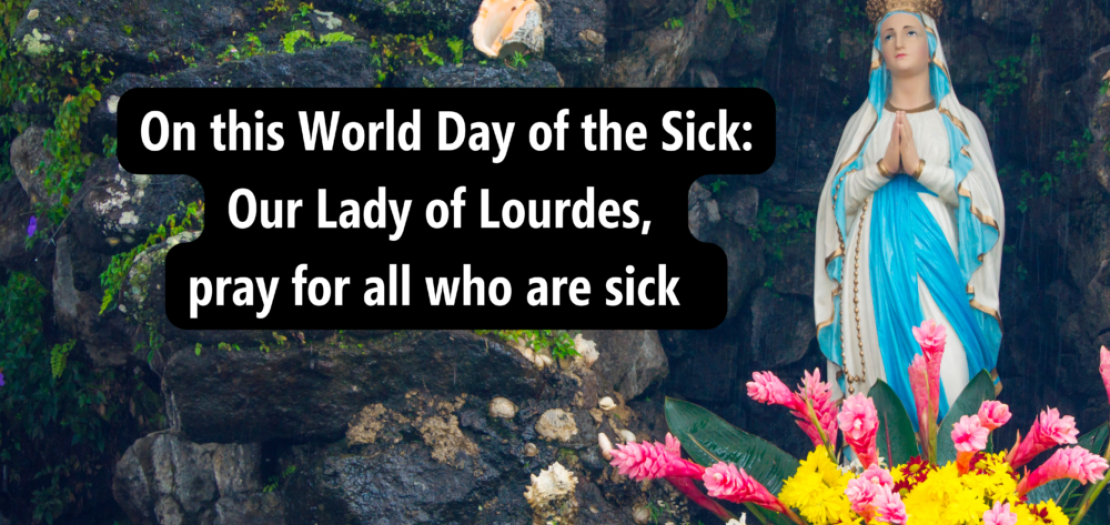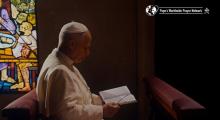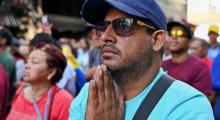Issued by the Catholic Center for Studies and Media - Jordan. Editor-in-chief Fr. Rif'at Bader - موقع أبونا abouna.org

“It is not good that man should be alone—Healing the Sick by Healing Relationships,” is the theme of Pope Francis’ message for the 2024 commemoration of the World Day of the Sick, held on 11 February.
In his message, released on Saturday, the Pope explores the fundamental importance and healing power of our relationships with others and with God.
Drawing on God’s words about Adam in the Biblical Book of Genesis, he notes that God’s first thought for the first man was that he should be in communion and relationship with other beings.
“Our lives, reflecting in the image of the Trinity, are meant to attain fulfillment through a network of relationships, friendships and love, both given and received,” says the Pope. “We were created to be together, not alone.”
This relational aspect of humanity, he adds, retains its importance even in moments of vulnerability, illness, and insecurity, which are often caused by the onset of a serious illness.
Therapeutic covenant
Pope Francis points out that the Covid-19 pandemic and ongoing wars have isolated many people.
Yet, he says, even countries living in peace and enjoying greater resources have a large number of people who face solitude and even abandonment due to old age and sickness.
Our “throwaway cultures” exalt productivity and individualism at the cost of those unable to produce an economic gain.
Politicians, says the Pope, are thus tempted to water down the “fundamental right to health and access to healthcare” by turning healthcare into a mere “provision of services” and wounding the dignity of the human person.
The Holy Father calls for healthcare systems to be accompanied “by a ‘therapeutic covenant’ between physicians, patients, and family members.”
God’s project of communion for humanity
Returning to God’s words—"It is not good for man to be alone”—Pope Francis says human sin wounds a person by severing their relationships “with God, with themselves, with others, with creation” and going against the “profound meaning of God’s project for humanity.”
“Such isolation causes us to miss the meaning of our lives,” he says. “It takes away the joy of love and makes us experience an oppressive sense of being alone at all the crucial passages of life.”
The Pope therefore invites everyone to offer compassionate and loving closeness to those who are ill, following the example of the Good Samaritan. (Luke 10:25-37)
“To care for the sick thus means above all to care for their relationships, all of them: with God, with others—family members, friends, healthcare workers—with creation and with themselves.”
Healing wounds of solitude and isolation
Each of us, says the Pope, came into the world because our parents welcomed us, and we were each “made for love” and are called to communion and fraternity.
The best therapy for those who are ill, he adds, is to offer them our love and communion, despite the pace of our own frenetic lives.
“To those of you who experience illness, whether temporary or chronic, I would say this: Do not be ashamed of your longing for closeness and tenderness!” says the Pope. “Do not conceal it, and never think that you are a burden on others.”
In conclusion, the Holy Father invites Christians to draw inspiration from Jesus’ compassion-filled gaze through prayer and the Eucharist, so as to “heal the wounds of solitude and isolation.”
“The sick, the vulnerable, and the poor are at the heart of the Church,” concludes Pope Francis. “They must also be at the heart of our human concern and pastoral attention.”







